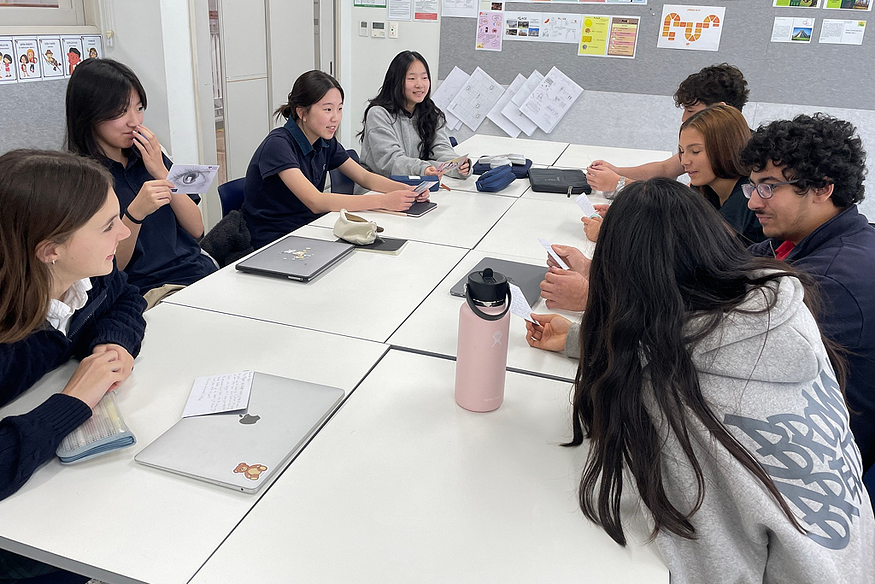What Makes the IB Diploma Program a “Gold Standard” in Pre-University Education?

The International Baccalaureate Diploma Program (IBDP), as presented in the Dwight Seoul curriculum, is frequently described as the “gold standard” for pre-university education. But what exactly earns it this reputation? From rigorous assessments to global recognition and holistic development, the IBDP offers many features that set it apart. Below, we explore the core components and defining strengths of the IBDP and how it prepares students for success in higher education and beyond.
Rigorous Academic Framework & Assessment
One of the primary reasons the IBDP is considered top tier is its rigorous academic structure. It spans Grades 11 and 12 (ages 16–19) and employs both internal assessments (ongoing work within the school) and external examinations which are timed, written tests administered under supervised conditions. This dual system ensures that students not only absorb content, but also are able to apply, appraise, and demonstrate understanding under pressure.
Core Components: TOK, Extended Essay, and CAS
What differentiates the IBDP from many other high school programs are its three required “core” components, which go beyond standard classroom learning:
- Theory of Knowledge (TOK): Encourages students to critically examine the nature of knowledge itself how we know what we believe, what counts as evidence, and how different fields of knowledge compare.
- Extended Essay (EE): A 4,000-word independent research project on a topic of personal interest. This develops skills in research, academic writing, managing deadlines, and self-direction.
- Creativity, Activity, Service (CAS): Requires students to engage in creative endeavors, physical activity, and community service. This encourages well-rounded growth, leadership, personal responsibility, and contribution to society.
These core parts build critical thinking, research skills, ethical maturity, and a broader worldview qualities universities tend to value highly.
Global Recognition & University Preparation
The IBDP’s reputation as a “gold standard” is reinforced by its recognition by top universities around the world. Benefits include:
- University credit / advanced standing in many institutions, which means students may skip introductory courses or receive credit for IBDP work.
- Scholarships and admissions advantages for DP diploma holders due to the rigor and breadth of their preparation.
- Equipped skills in research, time management, critical thinking, global awareness, and independent learning, which reduce the transition‐shock that many students face when entering university.
Because the same standardized external exams apply across many countries, the diploma provides credible and comparable evidence of achievement.
A Holistic & Global Learning Environment
Another key factor is the holistic nature of growth that the IBDP fosters:
- Students are encouraged not only to excel academically, but also to become responsible, ethically grounded, and globally aware individuals.
- The emphasis on intercultural competence and global citizenship: learning in a multicultural environment contributes to being comfortable in diverse settings and engaging with global issues.
- Healthy balance: through CAS and varied subject requirements, students gain experience in creative arts, sciences, physical activities, humanities all of which enrich personal growth and wellbeing.
Flexibility & Student Choice
Although the IBDP is demanding, it also offers flexibility:
- Students can choose subjects that match their interests, strengths, and future plans, while still adhering to the requirement to cover different knowledge areas.
- They may select higher levels in areas they wish to specialize in (for example, sciences, humanities, or languages) and standard levels where they wish less focus.
This balance of discipline and choice helps students feel invested in their learning path, reducing burnout and increasing engagement.
Admissions & Standards
To ensure readiness and maintain academic quality, there are clear entry requirements:
- IBDP Year 1: Must be at least 16 years old, have completed 10 years of formal education, and demonstrate English proficiency (or take a bridge course).
- IBDP Year 2: Must be at least 17, successful Year 1 completion, and proficiency in English.
These standards help ensure that students have the maturity, academic foundation, and language skills required to thrive in such a rigorous program.
Conclusion
Putting all of this together, the IB Diploma Program (IBDP) stands out as a “gold standard” because it doesn’t just aim for academic excellence, it targets holistic, globally oriented development, demanding both breadth and depth, pushing students in research, service, and thought, and preparing them for the real challenges of university and global life.
At Dwight Seoul, the IBDP is implemented in a way that leverages small class sizes, experienced faculty, and individualized support so that students can fully reap these benefits. For those seeking more than just high school, but preparation for leadership, citizenship, and rigorous academic life, the IBDP offers a compelling path forward.
Comments
Post a Comment